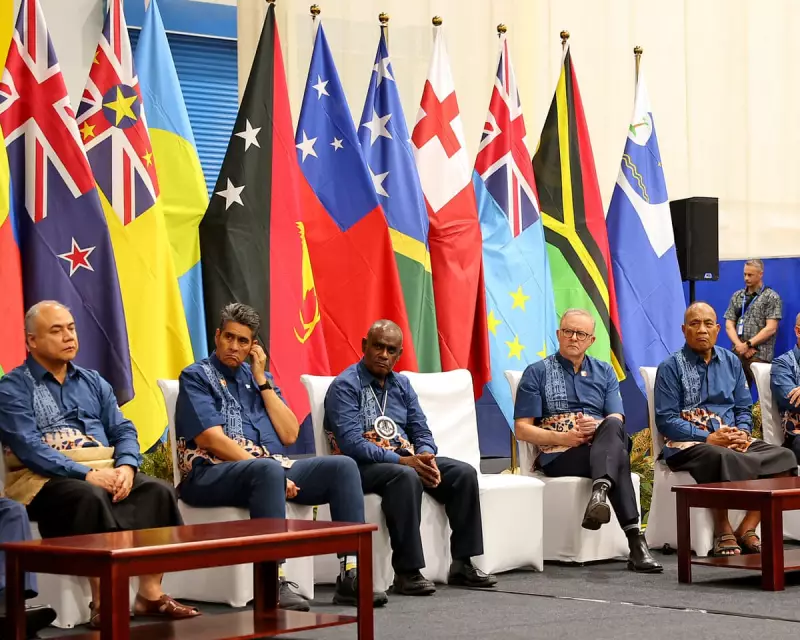
The 2025 Pacific Islands Forum (PIF), hosted in the Cook Islands, has drawn to a close, leaving in its wake a series of pivotal decisions that will redefine the region's future. Against a backdrop of intense geopolitical manoeuvring and an escalating climate crisis, Pacific leaders forged a path focused on assertive autonomy and collective action.
A Stance Against Geopolitical Manipulation
Forum Chair and Cook Islands Prime Minister Mark Brown delivered a powerful opening address, issuing a stern warning against nations that treat the Pacific as mere pawns in a global power game. While not naming specific countries, the message was a clear rebuke to the influence tactics of powers like China and the United States, emphasising that Pacific sovereignty is non-negotiable.
The Suva Agreement: A Fragile Unity Tested
The spectre of the 2021 Suva Agreement, which narrowly prevented a forum collapse, loomed large. This meeting served as a critical test of that hard-won unity. While fractures were evident, the collective will to present a united front on key issues like climate change ultimately prevailed, demonstrating the Agreement's enduring significance.
Australia's Diplomatic Reckoning
Australia faced significant scrutiny over its ambitious AUKUS nuclear submarine pact. Pacific nations, historically opposed to nuclear proliferation in the region, expressed deep unease. Canberra is now under immense pressure to engage in more transparent and conscientious dialogue to reassure its neighbours and mend diplomatic bridges.
Unveiling the ‘Delivering For Our People’ Strategy
A cornerstone outcome was the official launch of the 2050 Strategy Implementation Plan, aptly titled ‘Delivering For Our People’. This concrete framework translates long-term vision into actionable policy, focusing on sustainable development, people-centred growth, and bolstering regional resilience against external shocks.
A New Chapter in Regional Security
In a move signalling a new era of self-determination, leaders advanced a groundbreaking regional security pact. This initiative, championed by Fiji, aims to create a homegrown security architecture based on a uniquely Pacific definition of safety—one that prioritises human security, climate resilience, and domestic stability over traditional military alliances, potentially reducing reliance on external powers.
The forum’s outcomes mark a decisive shift towards a more confident and strategically unified Pacific, determined to carve its own destiny on the world stage.





